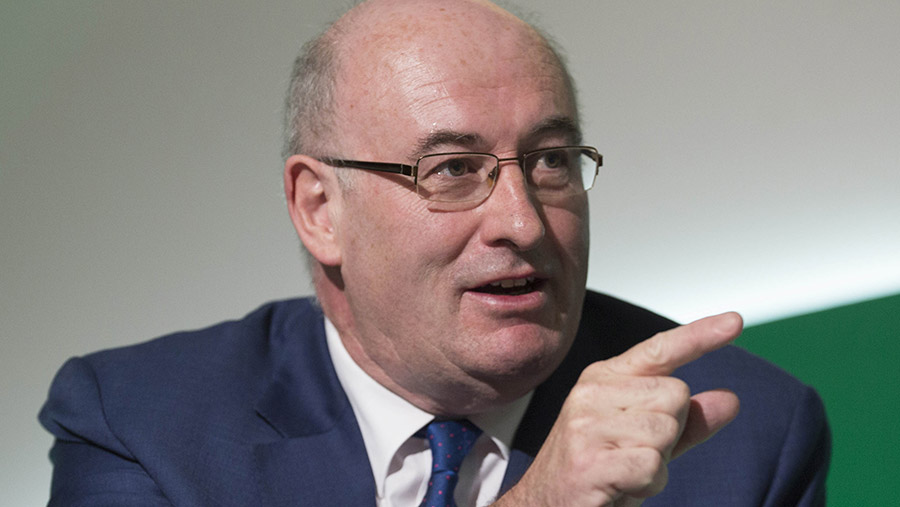
EU Agriculture Commissioner Phil Hogan was joined on the debating platform with the CLA President Ross Murray at the Devon County Show.
Taking part in the CLA breakfast event, Mr Murray said that rural businesses needed a clear understanding of the options and consequences involved in the referendum.
He said the CLA would not be telling members how to vote, and that it is important to have a full picture of how a vote to leave the EU would affect Britain’s trade agreements.
He also criticised EU regulation, citing: "The back breaking panoply of rules, regulations, forms, blind alleys, hurdles and hoops."
Mr Hogan told CLA members and guests that any notion that business would go on as usual should an exit vote be recorded on 23 June was fantasy.
He said: "I believe the Common Agricultural Policy offers the stability which can help secure a viable future for Devon farmers but I want the CAP to do more for farmers, to be less remote and less complex, to support farmers towards compliance rather than trying to trip them up and penalise them."
He assured the audience that he had identified hundreds of regulations which were set for the chop.
"I want to help farmers overcome this climate of fear about checks and regulations and together move towards a system where second chances exist and where people will not automatically land in trouble," he said.
But he did not accept all the blame. He agreed with Mr Murray that there had to be a sharing of responsibility with Defra to reduce paperwork and bureaucracy.
He said existing trade agreements gave UK Farmers access to global markets and that EU negotiating power was opening new and exciting markets in other parts of the world – markets which would not be so readily available to the UK if it were outside of Europe.
There were, he said, some 53 free trade agreements currently in place including 27 in Europe and renegotiating those would take some considerable time.
"We don’t want to see you cutting off your nose to spite your own face," he said.
"We want the UK to be at the heart of Europe on food markets and on research and development and we, in turn, want to work with rural businesses and communities to help protect key services and to help expand the UK’s markets across the globe."
